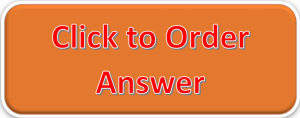Sociology Question
Sociology Question
Research and Analysis
Hi so this is the second part of the previous paper we did last time which is also about college counseling. You should conduct an interview with a counselor and we use the theories and things we talked about in paper one. You can find a person or see how you will do it and then I will just write the name of another counselor. Please pay attention to typos because I got points deducted bc of that last time.
In this phase, you will conduct or join an interview with a professional who is already working (or have recently worked) in the field you are hoping to enter.
Part 1. Reach out to one professional in the field who is working in your preferred career direction and schedule an interview about their work. If you have difficulty identifying a contact, please join one of the interviews arranged by the course instructors.
Part 2. Prepare for the interview with a set of approximately 5 questions that helps you understand their profession. Some of your questions may include:
- Do you work from a theoretical orientation? If so, what?
- What have you learned about your theoretical orientation since you started working? Has it shifted?
- What do you enjoy the most about your work? The least?
- What are some of the practical, social, emotional skills you find the most valuable in your work?
- What relational skills are important in your work?
- What does your working day look like?
- What are some of the most challenging situations you have come across?
Part 3. Conduct or join the interview.
Chapter 2: (4-6 pages) Write up the results of the interview as well as reflections on learnings and insights. The paper should describe how you will apply what you have learned.
- Describe some aspects of the interview that stood out to you. What did you learn?
- What aspects of the interview resonated for you? Why?
- How will you apply what you have learned in the interview?
- What makes you a suitable candidate for the career you are hoping to enter? What did the interviewee say that helps you identify that?
- What additional areas of knowledge or experience do you wish to explore based on what you learned from the interview?
- What are the implications of these insights on your orientation to your identified field of interest?
Module 2 Grading Rubric
- Content: You conducted or joined one interview with professionals in your desired career field.
- Connections: You clearly connected the responses to the interview to your personal reflections about your career goals.
- Writing: Paragraphs and sentences are logical units of thought and well organized. Statements are clear and easy to understand. Spelling, grammar, and diction are correct.
- APA style: You used APA style for citations, headings, and subheadings, spacing and writing.
Requirements: 5 pages
So first we picked a career choice now we are supposed to conduct an interview with someone who is in this career and ask them 5 of the listen questions and than do a write up of it and add what we learned and answer the questions she asked regarding what we have learned
I guess you can choose a community college counselor and than I will just change the name since I did not conduct an interview. Please be aware to not choose something online but think of it as it would be your assginment and you would contact a counselor at your school who would answer the questions. Or if this is too hard you can just try to come up with answers yourself.
so you are supposed to explain their answers but not like a question answer like what they answered and how it applies to you and what you learned from it
Chapter 2: (5-6 pages) Write up the results of the interview as well as reflections on learnings and insights. The paper should describe how you will apply what you have learned.
- Describe some aspects of the interview that stood out to you. What did you learn?
- What aspects of the interview resonated for you? Why?
- How will you apply what you have learned in the interview?
- What makes you a suitable candidate for the career you are hoping to enter? What did the interviewee say that helps you identify that?
- What additional areas of knowledge or experience do you wish to explore based on what you learned from the interview?
- What are the implications of these insights on your orientation to your identified field of interest?
Module 2 Grading Rubric
- Content: You conducted or joined one interview with professionals in your desired career field.
- Connections: You clearly connected the responses to the interview to your personal reflections about your career goals.
- Writing: Paragraphs and sentences are logical units of thought and well organized. Statements are clear and easy to understand. Spelling, grammar, and diction are correct.
- APA style: You used APA style for citations, headings, and subheadings, spacing and writing



